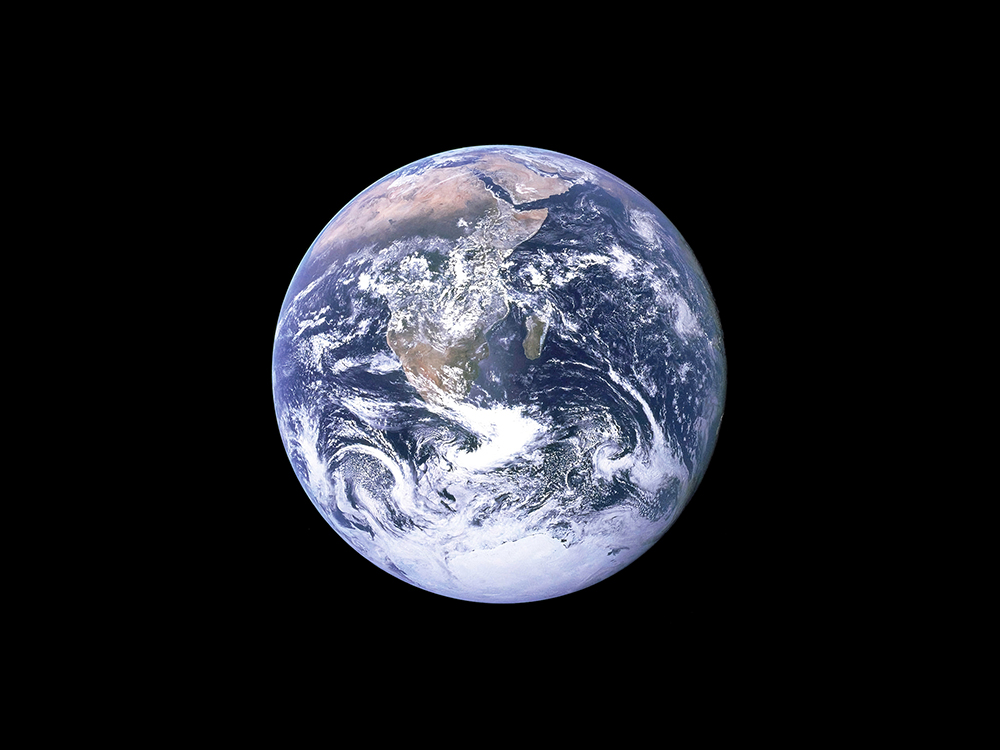On April 14, 2025, Jeff Bezos’ private space startup, Blue Origin, launched six non-astronaut, celebrity women into space. Apparently, the 10-minute flight promoted women in STEM (science, technology, engineering, and mathematics). If anything, though, the so-called “historic” voyage represented little more than that the excesses of capitalism are open to anyone with the cash to spend and celebrity status to launch them to the front of the line.
It should be noted that before Blue Origin’s recent female-crewed flight, Soviet cosmonaut Valentina Tereshkova was the first woman to travel to space on a solo mission. She’s not alone, and no thanks to Katy Perry, one of Blue Origin’s celebrity passengers — and passengers are what they were, since no scientific tests were performed during their few minutes of weightlessness. There have been multiple women astronauts from countries across the globe. It’s possible that this recent high-profile instance of space tourism encouraged some young girls to study science, but it seems a roundabout and expensive way of promoting that goal. This is spaceflight in the age of influencer culture, when celebrity status and the cult of personality matter more than education and study.
How else should we, the public, view that blatant PR stunt when on the same day of the so-called “mission,” Nature reported that “[p]reliminary copies of some of the U.S. government’s spending plans suggest that President Donald Trump’s administration intends to slash climate and space science across some U.S. agencies. At risk is research that would develop next-generation climate models, track the planet’s changing oceans, and explore the solar system. NASA’s science budget for the fiscal year 2026 would be cut nearly in half, to U.S. $3.9 billion.”
The priorities of the current administration — and the wealthy tech bros underwriting its rise to power — are on clear display. The future forecasted by such frivolous flights is a far cry from one in which scientific advancements are funded equitably and their rewards are shared with all. Instead, a coalition of the famous and filthy-rich will share a TikTok reel of their breathless awe as they experience weightlessness. The very idea of the Blue Origin flight is so out-of-touch that one is tempted to think its crew were already 66 miles above Earth’s surface.
In March, as part of Trump’s anti-DEI (diversity, equity, and inclusion) witch hunt, NASA removed two graphic novels featuring a female astronaut — First Woman: NASA’s Promise for Humanity and First Woman: Expanding Our Universe — from its website. So too was a sentence about the Artemis program’s goal heavily edited. The following sentence, rife with the demons of equity and inclusion, was scoured from the organization’s website: “NASA will land the first woman, first person of colour, and first international partner astronaut on the Moon using innovative technologies to explore more of the lunar surface than ever before.”
Again, the priorities are plain as day; it’s as though they’ve been written in the sky. Space, like every other natural resource, is there to be capitalized upon to increase the wealth and power of a select few, not to be explored for the betterment of all. As with public education and the United States Postal Service, the plan seems to be to pave the way for private companies like Blue Origin, Elon Musk’s SpaceX, and Richard Branson’s Virgin Galactic. Whether they’re angling for mining rights to the moon or nearby asteroids or hoping to project advertisements on the night sky via satellite, the future looks bleak. Though regular members of the Earth-bound rabble won’t be able to afford the $150,000 deposit on one of Blue Origin’s future flights, we will probably be able to rent an ad-free stargazing experience for a low monthly rate. Maybe during eclipses or meteor showers whole neighborhoods can pool their discretionary funds together for a light pollution-free weekend as a special treat. See? And they say there’s no way to build community these days!
Call me a starry-eyed idealist, but Amazon and Bezos should be taxed to fund NASA — and the National Science Foundation and the National Institutes of Health and other institutions working to serve the whole population. If they really want to inspire women to work in STEM careers, they should speak out against funding cuts to organizations that provide those jobs. They could invest in STEM scholarships, fund research institutions — like the University of Memphis, which was last year named an R1 institution by the Carnegie Classification of Institutions of Higher Education. They won’t, though because they want the glory and the financial gains.
These mega-rich social invalids can’t seem to connect, whether it’s to other humans or the simple awe of the universe around us. They read fictional tech-dystopias like Neal Stephenson’s Snow Crash and thought they were user’s guides. We’re a far cry from Gene Roddenberry’s futuristic and egalitarian tech-utopia of Star Trek. What would Captain Janeway think of our poor, backwards society, when breaking the bonds of gravity amounts to no more than a publicity stunt?
Jesse Davis is a former Flyer staffer; he writes a monthly Books feature for Memphis Magazine. His opinions, such as they are, can’t afford to reserve a ticket on a Blue Origin space tourism flight.
